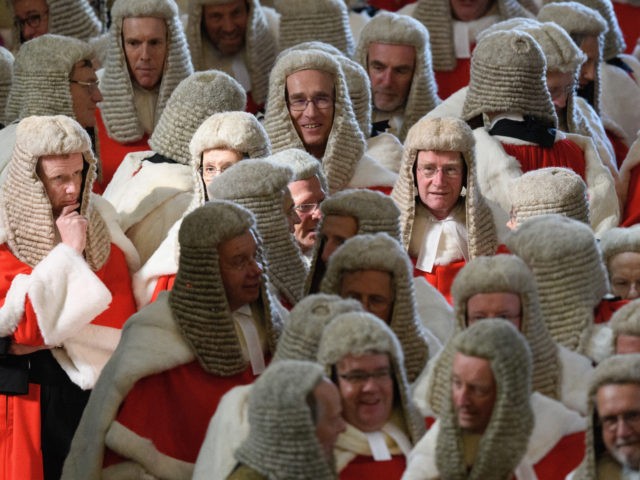Britain’s Court of Appeal has declared on Tuesday that a lady with Down syndrome has the right to appeal against a High Court decision that ruled the Abortion Act doesn’t discriminate against people with Down syndrome.
Heidi Crowter, 26, who has Down syndrome, contested in September in Britain’s High Court that the Abortion Act is discriminatory as it allows for babies with Down syndrome to be aborted up until birth, with abortions otherwise restricted beyond up to 24 weeks in England, Wales and Scotland.
“The law says that babies shouldn’t be aborted up to birth, but if a baby is found to have Down’s syndrome, it can be aborted up until birth. This is the current law in the UK and I think it’s not fair”, Crowter has previously said.
Crowter – who lives with her husband James who also has Down syndrome – lost her case on the 23rd of September, with High Court judges ruling that the Abortion Act wasn’t unlawful or discriminatory and instead insisted that it struck a balance between the rights of the mother and the unborn.
At the time Crowter said hearing the decision had made it “a very sad day”, but pledged to “keep fighting” and that “the judges might not think it discriminates against me, the government might not think it discriminates against me, but I am telling you I feel discriminated against”.
Crowter has also said in response to the ruling “the reason why I’m so upset, I feel no one wants a baby like me, and no one loves me…I want people to just see me”, she said.
However, Crowter and her co-campaigners were given fresh hope after this decision was questioned by the UK’s Court of Appeal, The Telegraph now reports.
Although the courts are allowing an appeal, they have maintained that under British law unborn babies do not have the right to life nor are they entitled to protection from inhumane treatment, and Crowter was not able to appeal on these grounds, meaning the case can only be appealed on “limited grounds of appeal”.
Similarly, the Court of Appeal has said that the current law is compatible with the European Convention on Human Rights and that a change of law is “clearly a matter for Parliament”, but have conceded that “even if the appeal is likely to fail for other reasons, this is an area where clarity is important and the applicants and others in their position are entitled to know where the law stands on the question of their rights and whether they have been interfered with”.
Unwilling to give up her cause even if the courts rule against her again Crowter has pledged to “go to the highest court in the land”, “Buckingham Palace” and even the “end of the Earth”.
Alongside Crowter, Máire Lea-Wilson is also appealing the case, her motivation being that she claims she was placed under pressure at 34 weeks to abort her now 2-year-old son, because of a Down syndrome diagnosis.
Wilson told the BBC that she believes the original judgement “effectively says that my two sons are not viewed as equals in the eyes of the law”.
“Equality should be for everyone regardless of the number of chromosomes they have”, Wilson continued.
There is no current date set for Crowter’s appeal, but she has said, “I hope we win. People shouldn’t be treated differently because of their disabilities, it’s downright discrimination”.
There are around 40,000 people with Down syndrome in Britain, yet in 2020, 90% of women in England and Wales whose babies were diagnosed with Down syndrome had opted for an abortion, which campaigners like Crowter argue creates an environment of discrimination before they are even born.
Britain has had a history of treating people with disabilities – particularly those with Down syndrome – poorly, and over the pandemic, an unknown number of disabled individuals – including children – were given ‘do not attempt resuscitation’ orders by Britain’s socialised National Health Services for simply having a disability during the Coronavirus pandemic – a practice that was found to have been potentially illegal under the Equalities Act of 2010.

COMMENTS
Please let us know if you're having issues with commenting.